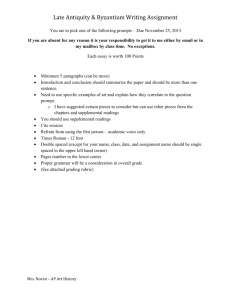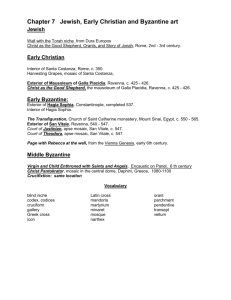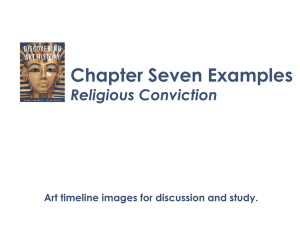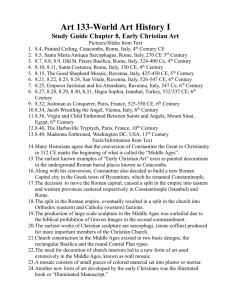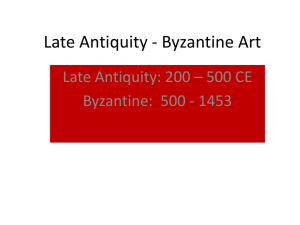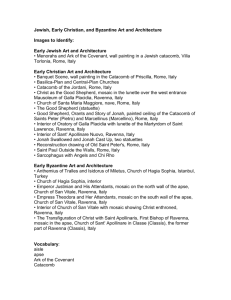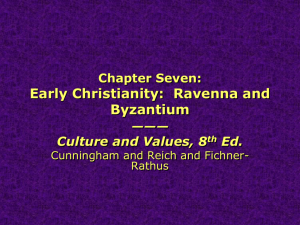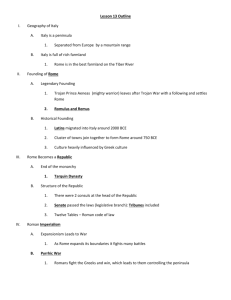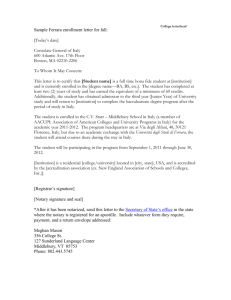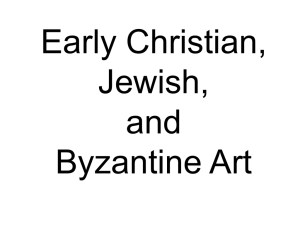Lat Antiquity and Byz Essay Questions
advertisement
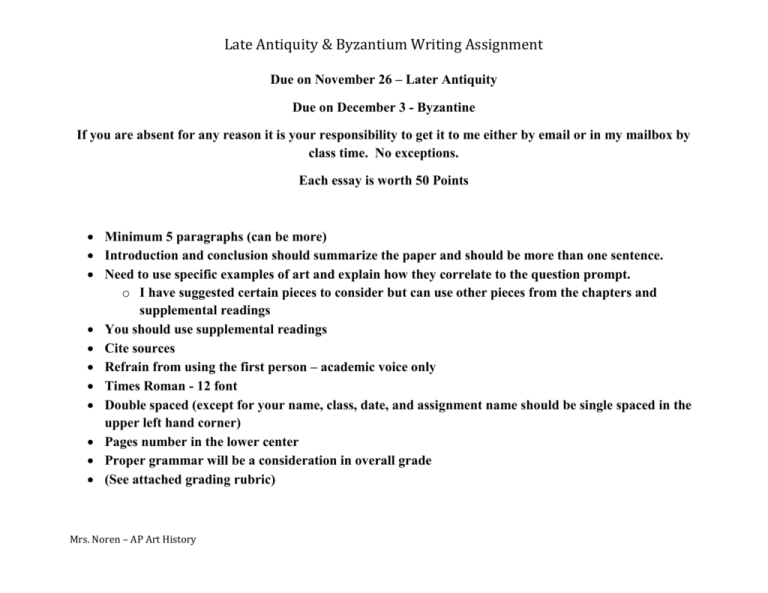
Late Antiquity & Byzantium Writing Assignment Due on November 26 – Later Antiquity Due on December 3 - Byzantine If you are absent for any reason it is your responsibility to get it to me either by email or in my mailbox by class time. No exceptions. Each essay is worth 50 Points Minimum 5 paragraphs (can be more) Introduction and conclusion should summarize the paper and should be more than one sentence. Need to use specific examples of art and explain how they correlate to the question prompt. o I have suggested certain pieces to consider but can use other pieces from the chapters and supplemental readings You should use supplemental readings Cite sources Refrain from using the first person – academic voice only Times Roman - 12 font Double spaced (except for your name, class, date, and assignment name should be single spaced in the upper left hand corner) Pages number in the lower center Proper grammar will be a consideration in overall grade (See attached grading rubric) Mrs. Noren – AP Art History Late Antiquity & Byzantium Writing Assignment Late Antiquity Question: 1. Explain the formal and iconographic characteristics of Late Antique Jewish and Christian art. Identify historical events and characters that exerted influence on the development of Late Antique art and architecture. Pay particular attention to the following art pieces Community House – Dura-Europos, Syria Samuel Anoints David (synagogue mural painting) – Dura-Europas, Syria Sarcophagus of Junius Bannus – Rome, Italy Old St. Peter’s – Rome, Italy Santa Sabina & Santa Contanza Churches – Rome, Italy Mosaics of Santa Maria Maggiore Church – Rome, Italy Mausoleum of Galla Placidia – Ravenna, Italy Miracle of the Loaves and Fishes (mosaic), Sant’Apollinare Nuovo – Ravenna, Italy Mrs. Noren – AP Art History Late Antiquity & Byzantium Writing Assignment Byzantium Question: 1. Explain the formal and iconographic characteristics of Early, Middle, and Late Byzantine art. Identify and discuss the persistence of classical traditions in art produced in the Early, Middle, and Late Byzantine periods Pay particular attention to the following art pieces Hagia Sophia (Constantinople) – Istanbul, Turkey San Vitale (church structure) – Ravenna, Italy Justinian, Bishop Maximianus et al (mosaic – San Vitale) - Ravenna, Italy Theodora and Attendants (mosaic-San Vitale) – Ravenna, Italy Transfiguration of Christ (apse mosaic – Church of the Virgin) – Mount Sinai, Egypt The Virgin and Child Enthroned Between Sts. Theodore & George – Mount Sinai, Egypt Katholikon and Theotokos (church structure and interior) - Hosios Loukas, Greece David Composing the Psalms (illumination from the Paris Psalter) – Paris, France Anastasis (apse fresco)-Church of Christ in Chora – Istanbul, Turkey Andrei Rublyev Three Angels– Moscow, Russia Mrs. Noren – AP Art History
